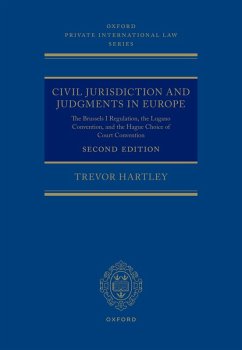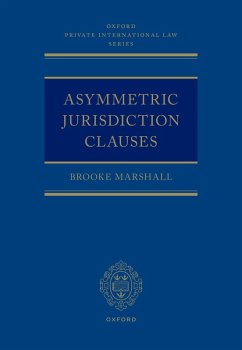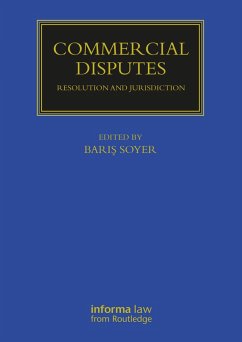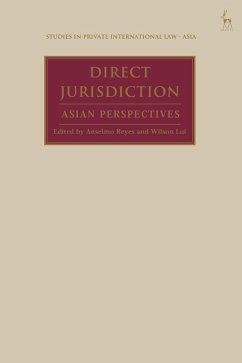
Asymmetric Jurisdiction Clauses (eBook, PDF)
Versandkostenfrei!
Sofort per Download lieferbar
66,95 €
inkl. MwSt.
Weitere Ausgaben:

PAYBACK Punkte
33 °P sammeln!
Asymmetric jurisdiction clauses, giving one party a right to choose the forum for litigation after a dispute has already arisen, are widespread in international commercial contracting. And yet for close to a decade their enforceability and effects under EU law have been uncertain, with seven different competing decisions from France's highest court progressively contributing to the murky waters. From the interpretation of material changes to the Brussels I Recast Regulation, to obiter comments by English judges as to whether the 2005 Hague Choice of Court Convention on 'exclusive' jurisdiction...
Asymmetric jurisdiction clauses, giving one party a right to choose the forum for litigation after a dispute has already arisen, are widespread in international commercial contracting. And yet for close to a decade their enforceability and effects under EU law have been uncertain, with seven different competing decisions from France's highest court progressively contributing to the murky waters. From the interpretation of material changes to the Brussels I Recast Regulation, to obiter comments by English judges as to whether the 2005 Hague Choice of Court Convention on 'exclusive' jurisdiction clauses applies to asymmetric clauses, how can lawyers balance certainty, flexibility, and risk in this difficult legal landscape? This book explores this conundrum and aims to bring clarity to the current law on asymmetric jurisdiction clauses in the EU, England, and Contracting States to the Hague Convention 2005. It seeks to prompt practitioners and scholars to reflect carefully and critically on how and why asymmetric clauses are used, whether courts will -and should- hold businesses to them, and how both the law and the clauses themselves could be better designed in the future.
Dieser Download kann aus rechtlichen Gründen nur mit Rechnungsadresse in A, B, BG, CY, CZ, D, DK, EW, E, FIN, F, GR, HR, H, IRL, I, LT, L, LR, M, NL, PL, P, R, S, SLO, SK ausgeliefert werden.













